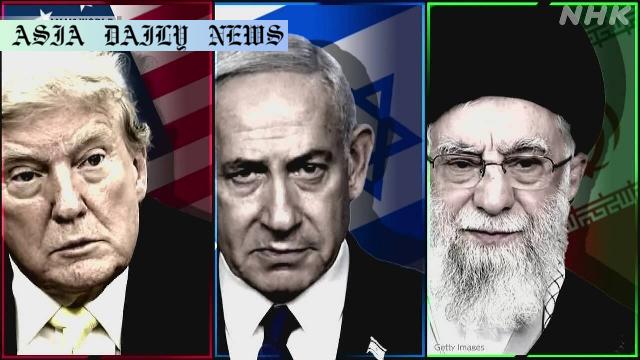Ceasefire breached? Israel strikes Tehran following allegations of missile launches, as Iran denies accusations amidst tensions.
- Israel accuses Iran of violating a ceasefire with missile launches.
- Israel orders strikes on Tehran, targeting government sites.
- Iran denies launching missiles; cites conflict misinformation.

Background of the Ceasefire Agreement
The recent developments have unfolded against the backdrop of a tense agreement aimed at de-escalating the conflict between Israel and Iran. Announced through diplomatic channels, the ceasefire was a vital step to mitigate mounting tensions in the region. U.S. President Donald Trump previously confirmed online that both sides had agreed to a cessation of hostilities. However, the rapid unraveling of this accord highlights the fragile nature of such agreements amidst enduring animosities.
Israel’s Perspective on the Breach
Israel’s Defense Ministry issued a scathing statement accusing Iran of initiating missile strikes violating the terms of the ceasefire. Israel’s defense minister, Israel Katz, has ordered forceful retaliatory actions targeting government infrastructures within Tehran, demonstrating the country’s zero-tolerance stance on perceived breaches. From Israel’s perspective, the alleged missile launches constitute a breach of trust and endanger national security, thereby justifying the military escalation.
Iran’s Denial and Counterclaims
Contrasting these claims, Iran’s state-run media and government leaders have vehemently dismissed the accusations. Press releases assert that no missile launches have recently originated from Iranian territories. This denial coincides with earlier state reports that the ceasefire agreement is being adhered to. Analysts suggest that miscommunication or misinformation could be playing a central role in the conflicting narratives currently driving tensions higher.
Implications for Regional Stability
The escalation of military actions has profound implications for the already volatile Middle East. If Israel and Iran fail to restore dialogue and mutual trust, the regions surrounding both nations could witness increased instability. This raises questions about the efficacy of international mediators in resolving such complex disputes, particularly with powers like the U.S., who have historically been key players in similar negotiations.
Global Reactions and the Path Forward
Global leaders and organizations have expressed concern over this rapid escalation. Some commentators believe that this may mark a significant setback for any potential rapprochement between Israel and Iran. Moving forward, diplomatic efforts need to emphasize transparency, verification mechanisms, and the inclusion of third-party observers to reduce the chances of further disputes over ceasefire violations.



Commentary
Analyzing the Current State of the Ceasefire
The reported violation of the ceasefire agreement between Israel and Iran serves as a sobering reminder of the fragility and complexity of such accords. The international community often works tirelessly to negotiate ceasefires in volatile regions, yet these agreements can disintegrate with alarming speed. It highlights the pressing need for diplomatic mechanisms that ensure accountability and reduce accusations of breaches.
Broader Implications of Escalation
The military escalation ordered by Israel carries with it far-reaching consequences. Targeting a nation’s capital, as in the case of Tehran, is an action laden with both symbolic and strategic significance. Such moves invariably invite retaliations, potentially escalating into a full-scale conflict that could destabilize the Middle East. It also puts civilian lives at unprecedented risk, underscoring the need for restraint and dialogue rather than armed responses.
A Call for Diplomacy and Verification
The conflicting accounts from Israel and Iran add another layer of complexity to an already tense situation. If Iran’s claims of non-involvement are to be believed, it raises questions about whether misinformation or other entities might be exploiting the fragile ceasefire to further their agendas. This points to the importance of third-party, neutral verification systems to address and mitigate such misunderstandings before they result in escalated tensions or military action.
The Role of the International Community
At this critical juncture, the international community must step up efforts to mediate between the two countries. Both Israel and Iran hold pivotal roles in shaping Middle Eastern geopolitics, and unchecked hostility could ripple across the region. Multilateral dialogues initiated by neutral parties could bridge the deep divides, offering hope for lasting peace and stability in one of the world’s most conflict-prone regions.